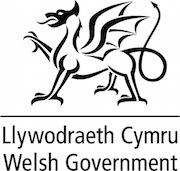The Marketing Of Fruit Plant Propagating Material (England) Regulations 2016 and The Marketing Of Fruit Plant Propagating Material (Wales) Regulations 2016
Overview
This consultation seeks views on proposed regulations which revoke and replace the Marketing of Fruit Plant Material Regulations 2010. Their purpose is to implement new EU directives introducing standards for the identity and quality of fruit propagating material.
Defra is consulting on behalf of Welsh Government, although separate regulations for England and Wales will be made. Defra and Welsh Government intend to lay regulations in late 2016 and transpose the directives by 31 December 2016. The underlying approach is to adapt the existing voluntary scheme managed by APHA and the Nuclear Stock Association with as little change as possible, including to costs.
The marketing of fruit plant propagating material of the main fruit species has in principle been regulated by EU directives since 1992. The underlying directive was revised in 2008 (Council Directive 2008/90/EC) and corresponding UK regulations were introduced in 2010. The legislation is now being updated to transpose three Implementing Directives which were agreed in 2014. They are:
- Commission Implementing Directive 2014/96/EU on requirements for the labelling, sealing and packaging of fruit plant propagating material and fruit plants intended for fruit production
- Commission Implementing Directive 2014/97/EU on requirements for the registration of suppliers and of varieties and the common list of varieties.
- Commission Implementing Directive 2014/98/EU giving requirements for named genera and species of fruit plants, requirements to be met by suppliers and detailed rules concerning official inspections.
These new directives give detailed requirements for the production and sale of propagating material of regulated species to assure identity and quality. The main species relevant to the UK are strawberry, raspberry, blackberry and blueberry. The directives introduce specific requirements for establishing the identity and quality of propagating material and for labelling and packaging, to provide assurance for buyers of the material. Harmonised standards will facilitate the single market, potentially giving UK businesses easier access to other Member States.
The directives set up harmonised EU certification schemes with high standards, while also permitting producers to market uncertified material meeting minimum standards. That is, certification is optional, but if the producer wishes to market certified material, it must meet the EU requirements.
The directives take the same underlying approach as longstanding legislation for the marketing of seed and other propagating material of agricultural and vegetable crops, young vegetable plants, ornamental plants and forestry material
The main points to note are:
- The introduction of EU harmonised certification schemes to replace various national schemes
- A requirement to label certified and non-certified propagating material with specified information and the possibility of using specified colours for the three certification grades. These colours match those used internationally for seed certification.
The consultation will be of interest to producers of propagating material of the regulated species and to fruit growers, particularly commercial ones. We encourage you to share this consultation widely with other organisations and individuals who may be interested in the legislation. Further detail is given in the Regulatory Triage Assessment, which we are seeking to validate through this consultation.
The consultation questions are listed in the online survey. Please click on the link to the online survey below to take part in the survey. Alternatively, you can get in touch by email with your response or any queries at:
fruitconsultation@defra.gsi.gov.uk
Why your views matter
On 23 June, the EU referendum took place and the people of the United Kingdom voted to leave the European Union. Until exit negotiations are concluded, the UK remains a full member of the European Union and all the rights and obligations of EU membership remain in force. During this period the Government will continue to negotiate, implement and apply EU legislation. The outcome of these negotiations will determine what arrangements apply in relation to EU legislation in future once the UK has left the EU.
We are therefore consulting in order to obtain better information about the impact of these new regulations. We consider that these will be near to cost neutral on the basis of the information we have.
What happens next
The information will contribute to a more accurate assessment of the impacts of the new regulations.
As the directives are in place, options for changing draft regulations are very limited, but views would be taken into account in any discussions and negotiations of updates to the directives.
Where National discretion is permitted, views of respondents will be taken into account, with the aim of making regulations which suit producers and users as far as is possible.
Audiences
- Devolved Administrations
- Government Departments
- Horticulture Industry
- Professional and Membership Organisations/Agencies
Interests
- Growing and crops


Share
Share on Twitter Share on Facebook